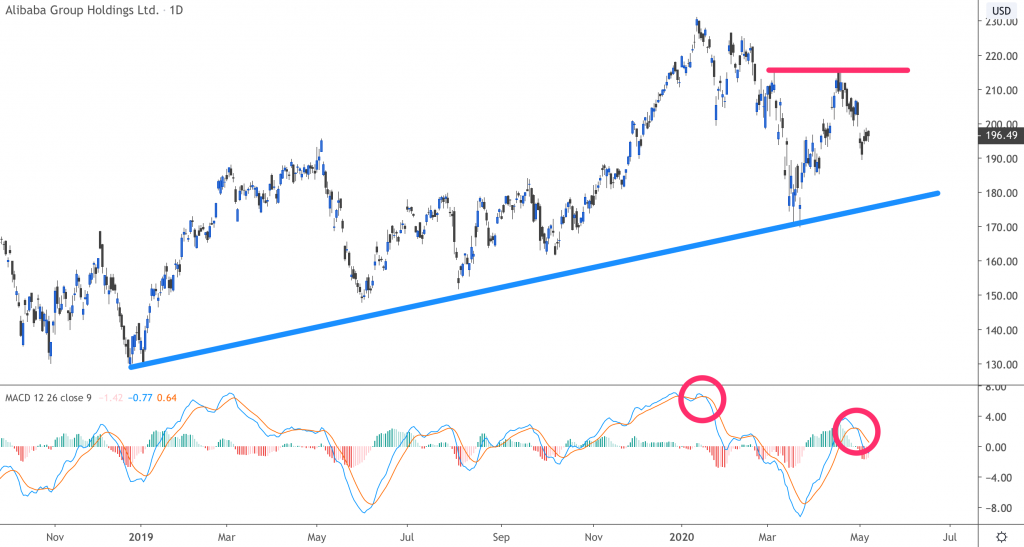This stock could portend what’s to come for the world market.
The coronavirus has forced shutdowns the world over, and while many countries are just beginning to reopen, China—where the deadly virus first appeared—has been reopened for business now for several weeks.
But even as the world’s second-largest economy is back up and running before much of the rest of the world, Chinese stocks are still underperforming the S&P 500.
And one Chinese stock in particular could forecast what happens next in the group, as well as have implications for the rest of the market.
According to Miller Tabak chief market strategist Matt Maley, Alibaba (NYSE: BABA) “started rolling over in very early January before the Chinese stock market did and certainly before the global economy started to slow down. So, in other words, its weakness was a good leading indicator to tell us that the coronavirus was going to have a bigger impact than a lot to people thought.”
Alibaba shares peaked for the year on January 13 and have since fallen -15%. And while the stock is up nearly 16% since its recent bottom and got a boost this week after the Chinese e-commerce giant announced its plans to invest around $28 billion in cloud technology over the next three years, including operating systems, servers, chips, and networks, Maley doesn’t anticipate the rally will hold.
“It has bounced back very nicely along with the rest of the global stock market, but it’s rolling back over the last couple of weeks as a lot of other markets have held up pretty well,” Maley said. “One reason on the technical side that I’m a little worried about it, if you look at its MACD chart, it’s rolling over, curling over at a lower level than it did back in January showing that this rally had a lot less momentum in it than the previous one did.”
Maley added that if Alibaba shares do roll back over and fall below $180, the move could portend a bigger problem in Chinese markets, as well as the broader global economy.

China is a kind of model for the rest of the world of what recovery looks like when shutdown restrictions are eased. And while some parts of the Chinese economy have been open for a month now, consumers are still scarce.
Data is soon to reveal if April marks the start of a much-hoped for recovery in China, but there are already worrying signs in the retail sector that consumers just aren’t buying despite an abundance of shopping options.
Among those who are spending less are China’s young entry-level workers, a generation that was born to throw money into the economy unlike their saver parents, and the workers that were the easiest to lay-off when the economy shut down amid the coronavirus outbreak. Alibaba CEO Danial Zhang has called this group “the main consumption power” in China.
This trend may be duplicated in the U.S. where the age group hit hardest by layoffs over the last seven weeks have been those between ages 18 and 29 as well as older millennials. And with less money coming in, this cohort will also be spending less as the economy begins to recover.